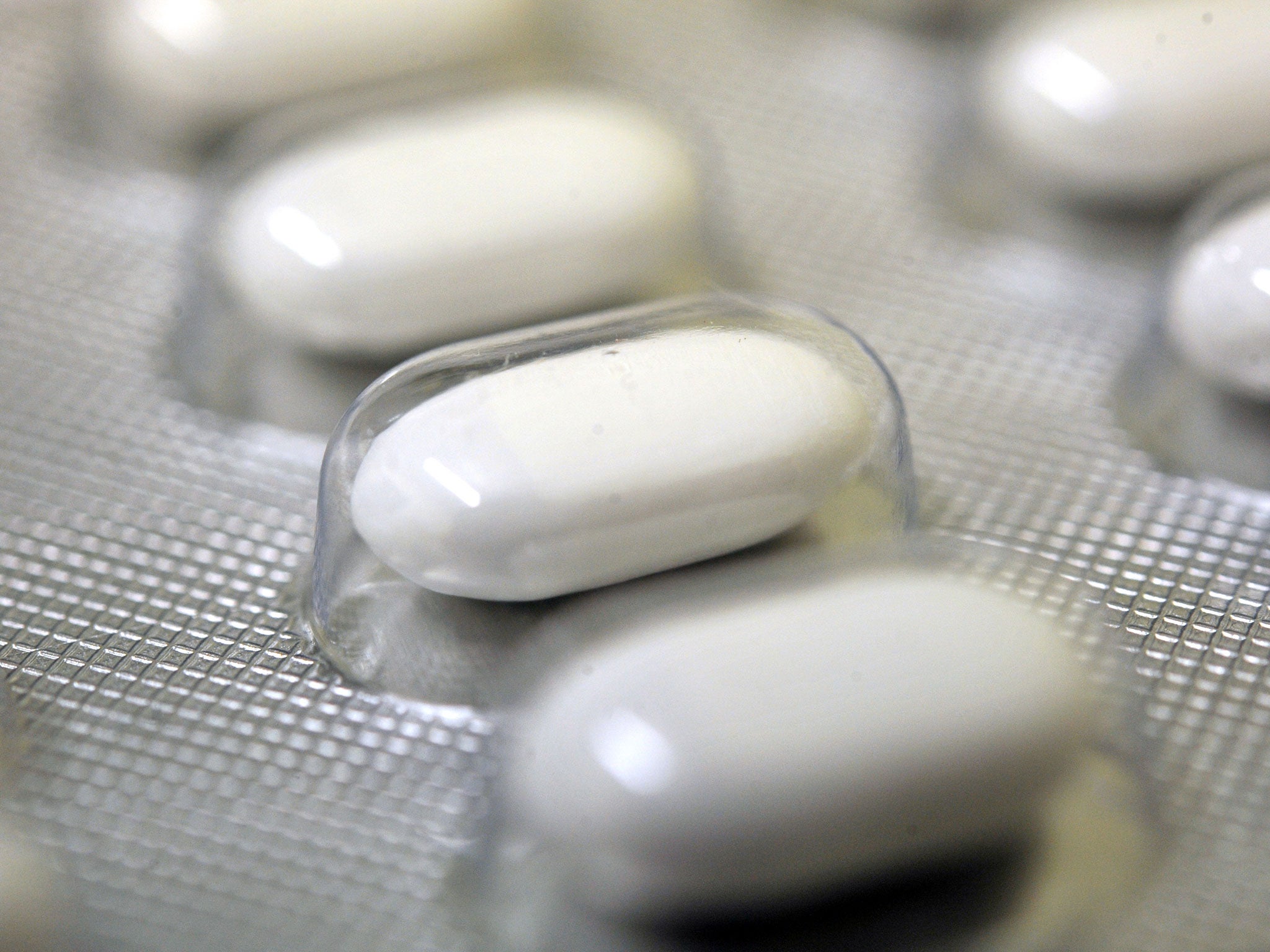Is cold medicine a waste of money?
One expert described it as a "rip off"

Your support helps us to tell the story
From reproductive rights to climate change to Big Tech, The Independent is on the ground when the story is developing. Whether it's investigating the financials of Elon Musk's pro-Trump PAC or producing our latest documentary, 'The A Word', which shines a light on the American women fighting for reproductive rights, we know how important it is to parse out the facts from the messaging.
At such a critical moment in US history, we need reporters on the ground. Your donation allows us to keep sending journalists to speak to both sides of the story.
The Independent is trusted by Americans across the entire political spectrum. And unlike many other quality news outlets, we choose not to lock Americans out of our reporting and analysis with paywalls. We believe quality journalism should be available to everyone, paid for by those who can afford it.
Your support makes all the difference.To the sick, to the allergic, to the tissue-clutching, stuffy-nosed sufferer, there's a certain aisle in the drug store that offers unbridled hope, where shelves overflow with cold and sinus medicines advertising relief. It seems all a bleary-eyed person needs to do is pluck one from a cornucopia and breathe easy.
Now, science has a more definitive solution to our drugstore dilemma: keep on walking.
A study published in the Journal of Allergy and Clinical Immunology: In Practice in September examined phenylephrine, the decongestant that appears in many over the counter cold medicines found on store shelves, from Tylenol Sinus to Sudafed PE to Advil Sinus Congestion & Pain. Phenylephrine worked no better than a placebo at reducing nasal congestion in people suffering from seasonal allergies — even at doses four times higher than is typical in cold or sinus medicines.
“It's a ripoff,” said Leslie Hendeles, a professor of pharmacy and pediatrics at the University of Florida who receives no funding from drug companies and wrote an accompanying editorial. “Right now, people with a stuffy nose deserve to get relief from an effective medicine.”
The study, funded by the pharmaceutical company Merck (which last year sold an allergy medicine that contains a rival decongestant to Bayer), is just the latest piece of evidence to cast doubt on the effectiveness of phenylephrine.
One study showed that majority of the drug is broken down in the gut and the liver, flushed out of a person's system before it makes it into the bloodstream. A 2009 study that will sound especially sinister to anyone who suffers from allergies put 39 patients with a grass allergy into a sealed room called the “Vienna Challenge Chamber.” Then, the scientists piped in grass pollen. The people were given phenylephrine, a sugar pill, or another decongestant called pseudoephedrine. Phenylephrine did no better than placebo, while pseudoephedrine — which must be obtained by going to the pharmacist's counter — beat them both.
Not everyone agrees that the evidence shows phenylephrine doesn't work — in 2007, a Food and Drug Administration's advisory committee deemed that evidence was “suggestive” it worked.
“Phenylephrine 10 mg is safe when used according to the label and has been proven effective for nasal decongestion in multiple clinical trials,” said Barbara Kochanowski, the vice president of regulatory and scientific affairs at the Consumer Healthcare Products Association, a trade association that represents over-the-counter drugmakers.
Evidence of phenylephrine's effectiveness comes from a review that combined and analyzed the results of seven individual studies. It found the drug had a small but real effect on nasal airway resistance, a technical measure of airflow in the nose, in 113 people. One to three hours after taking the drug, people experienced at least a 20 percent reduction in nasal airway resistance.
The new study examined the drug in more than 500 people with seasonal allergies, at escalating doses. That meant it would have increased the amount of the drug that bypassed the gut and liver and made it into the bloodstream. Even then, phenylephrine worked only as well as placebo. The study used a measure of how patients felt— a nasal congestion symptom score — instead of measuring nasal airway flow.
So why does phenylephrine persist?
There's a lot at stake: upper respiratory ailments account for $1.1 billion in annual sales in 2014, according to data from the Nielsen Company.
“For well over forty years, consumers worldwide have relied upon phenylephrine to give them much needed relief from nasal congestion caused by the common cold and allergies,” Kochanowski said.
Hendeles is drafting his second citizen's petition to the Food and Drug Administration to have phenylephrine reviewed. He argues that companies simply don't want to have to cut into their sales by putting their drugs behind a pharmacy counter, which is required by law for pseudoephedrine. That's because pseudopehedrine can be used to make methamphetamine and theCombat Methamphetamine Epidemic Act that was signed into law in 2006 made it harder to obtain.
Rather than have their products vanish from store shelves, companies began reformulating medications that previously contained pseudoephedrine with phenylephrine, Hendeles said. Otherwise, people who didn't know or want to bother to go to a pharmacy counter, people looking for sinus relief in a gas station or airport kiosk that isn't a regulated seller, and people who simply don't read ingredients and trust the words “cold relief” would no longer buy their products.

It can be a confusing situation for consumers, with seemingly identical drugs having different active ingredients. For example, Sudafed has pseudoephedrine in it, but Sudafed PE's active ingredient is phenylephrine. Advil Cold & Sinus has pseudoephedrine, but Advil Allergy & Congestion Relief contains phenylephrine.
While pseudoephedrine has more evidence to support its use than phenylephrine, Wanda Filer, president of the American Academy of Family Physicians, said she tends to recommend patients skip all decongestants. None of the drugs work very well, and they can come with side effects such as jitteriness, dry mouth, and raising blood pressure. Instead, she recommends taking a hot shower or filling a sink with hot water, draping a towel over your head and breathing in the steam.
“The decongestants, in particular, I suspect most of us would not be the least big surprised they’re not the least bit effective, because that’s our experience,” Filer said. “Frequently, I find an awful lot of people may get an hour of relief; over the long term they seem to feel worse.”
So, advice one step better next time you feel the sniffles coming on: Save your money for soup.
Washington Post
Join our commenting forum
Join thought-provoking conversations, follow other Independent readers and see their replies
Comments